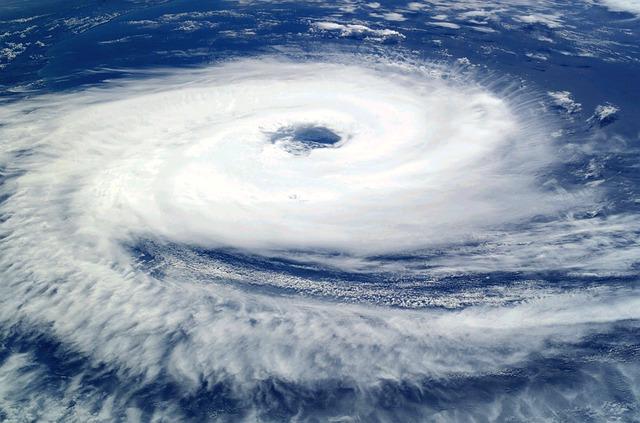Cyclone Ditwah LIVE: India Mobilizes Aid with Helicopter Deployment from INS Vikrant
In a swift response to the escalating crisis caused by Cyclone Ditwah, Indian authorities have dispatched helicopters from the naval aircraft carrier INS Vikrant to support Sri Lankan efforts in managing the disaster. This move comes at the request of the Sri Lankan government as the cyclone brings severe weather conditions, prompting urgent humanitarian assistance. As the situation develops, authorities on both sides are racing against time to provide aid and conduct rescue operations for those affected by the storm. This article will provide live updates on the deployment and ongoing relief efforts, shedding light on the collaborative response between India and Sri Lanka in the face of natural calamity.
Cyclone Ditwah Response: India’s Strategic Deployment of INS Vikrant Helicopters
In a swift and decisive operation, the Indian Navy has mobilized helicopters from the aircraft carrier INS Vikrant to assist in the humanitarian response to Cyclone Ditwah in Sri Lanka. This deployment, requested by the Sri Lankan government, underscores India’s commitment to regional stability and disaster response coordination. The helicopters are poised to provide critical support, including transport of relief materials and medical assistance to the affected areas. The operation highlights the operational capabilities of INS Vikrant, which has rapidly established itself as a key asset in India’s naval fleet.
The deployment of these helicopters is expected to significantly enhance the efficiency of relief efforts on the ground. The Indian Navy personnel, trained in disaster response, are prepared to carry out various missions, including:
- Search and Rescue Operations: Locating stranded individuals and providing emergency care.
- Transport of Relief Supplies: Delivering food, water, and medical supplies to remote regions.
- Medical Evacuations: Assisting in the evacuation of the injured to healthcare facilities.
Moreover, to facilitate coordination and track the effectiveness of the relief operations, a special command center has been set up. The center will be responsible for monitoring the evolving situation and ensuring that resources are allocated where they are most needed. This collaborative effort not only strengthens ties between India and Sri Lanka but also exemplifies India’s readiness to respond to regional crises.
Humanitarian Efforts Underway: Coordinated Rescue and Relief Operations in Sri Lanka
In a pivotal move to assist Sri Lanka amid the devastation caused by Cyclone Ditwah, India has swiftly deployed helicopters from the aircraft carrier INS Vikrant. This initiative comes as part of a larger cooperative framework designed to enhance relief efforts and provide critical support to those affected by the extreme weather conditions. Rescue operations are being coordinated between Indian and Sri Lankan authorities, ensuring a seamless response to the escalating humanitarian crisis.
The on-ground efforts encompass a range of activities aimed at providing immediate assistance to impacted communities. Key elements of these operations include:
- Airlifting stranded individuals from remote areas
- Delivering essential supplies such as food, water, and medical kits
- Assessing damage in affected regions to tailor further assistance
- Establishing temporary shelters for displaced families
Below is an outline of the current status of the relief operations:
| Operation Status | Details |
|---|---|
| Helicopters Deployed | 5 helicopters from INS Vikrant in operation |
| Rescue Missions | 200 individuals successfully evacuated |
| Supplies Delivered | 1,000 kg of essential goods |
| Temporary Shelters Established | 3 makeshift centers accommodating over 500 people |
Impact Assessment: Long-Term Solutions for Future Cyclone Preparedness in the Region
The devastating impact of Cyclone Ditwah on the region underscores the urgent need for comprehensive long-term solutions to enhance cyclone preparedness. As local governments grapple with the immediate aftermath of the storm, it is crucial to implement strategic measures that can mitigate future disasters. Some proposed solutions include:
- Strengthening Infrastructure: Upgrading buildings and roads to withstand extreme weather conditions.
- Improving Early Warning Systems: Investing in technology that provides timely alerts to residents about impending cyclones.
- Community Training Programs: Educating locals about disaster preparedness and response techniques.
- Coastal Restoration Projects: Rehabilitating mangroves and wetlands to buffer against storm surges.
Furthermore, investing in resilient agricultural practices will also play a critical role in safeguarding local food supplies during such crises. A collaborative approach involving government agencies, NGOs, and community stakeholders can foster resilience across affected areas. In this regard, the following table highlights key focus areas that should be addressed for a robust preparedness strategy:
| Focus Area | Actions Required |
|---|---|
| Infrastructure | Reinforcement of buildings, roads, and bridges. |
| Emergency Services | Enhancement of rescue and medical response capabilities. |
| Public Awareness | Regular community drills and educational workshops. |
| Research and Development | Studying cyclone patterns and impacts to improve forecasting. |
The Way Forward
As Cyclone Ditwah continues to pose significant challenges across the affected regions, the swift response from India underscores the spirit of regional cooperation and humanitarian assistance. The deployment of helicopters from the INS Vikrant, requested by Sri Lankan authorities, demonstrates India’s commitment to supporting its neighbors during times of crisis. Ongoing updates will track the evolving situation and the efforts to mitigate the cyclone’s impact on vulnerable communities. As the wind and rain continue, preparedness and solidarity remain essential in navigating the aftermath of this natural disaster. Stay tuned for further developments.
